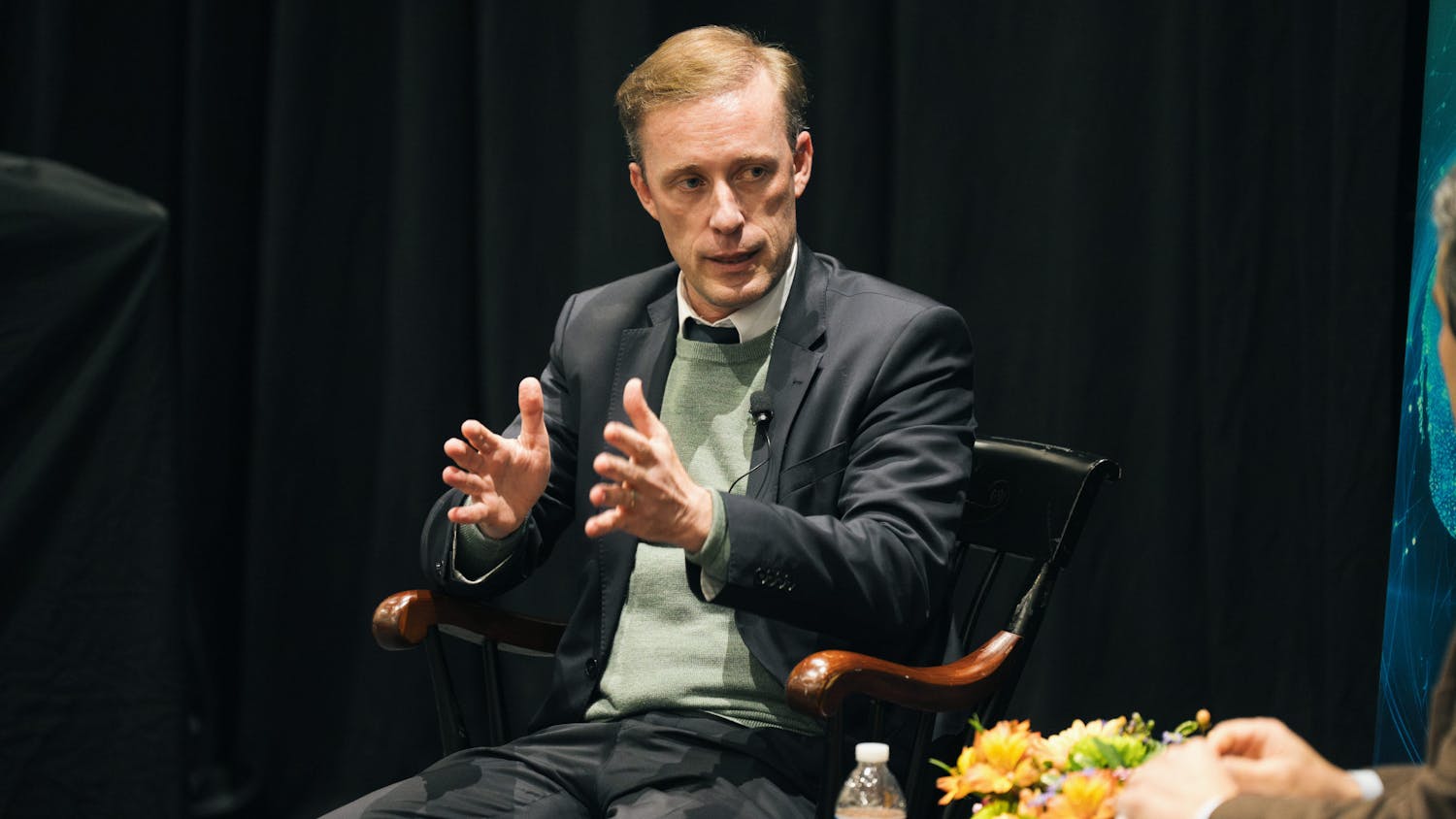As the world watched the plight of the Jews during the Holocaust, what did the Vatican have to say, especially when deportation began "right under the pope's windows"?
Michael R. Marrus, Dean of the Graduate School and professor of Holocaust Studies at the University of Toronto, addressed this question in his lecture on the Vatican and the Holocaust, held Wednesday at the Rockefeller Center.
He began his speech, largely attended by senior citizens in addition to a handful of students, explaining that in order to better understand a big issue, one should analyze specific events.
The event in focus was the round-up and eventual deportation of Jews from Nazi-occupied Rome, during two days in October, 1943, and the chain of events that followed.
He said that Nazi occupation forces rounded up 1,259 Jews from the Rome ghetto. One thousand of those were deported by freight train to the infamous death camp, Auschwitz. Fifty survived to the end of the war.
The pope at the time, Pius XII, was well informed of the events as they occurred. However, Marrus said, no protest was issued.
Why? According to Marrus, there are three popular ways to interpret the papal actions.
The first is the stance of condemnation, he said, which is the view that the pope and the Vatican behind him did not want to protest, for whatever reason he might have had.
Another interpretation, he explained, is that the Vatican did what it could under the circumstances, while weighing the effects of a protest against the effect of other, more subtle signals.
Lastly, he claimed that the Vatican could be seen as thoroughly diplomatic, balancing on a thin line, on either side of which lay disaster.
According to Marrus, some of the condemning accusations leveled against the pope included the claim that when commenting on the deportment, he spoke in the language of humanitarianism, rather than in the language of protest, thus showing his indifference toward the fate of the Jews.
Marrus continued, explaining one of the other interpretations, that the Vatican and the pope did as well as they could under the circumstances.
Whatever view you adopted, he claimed, it was clear that Pope Pius XII did concern himself with the possibility of exacerbating the situation, for both the Jews and the Vatican. It was feared that strenuous protests could have catastrophic results, and the Vatican, being only a "small, highly vulnerable enclave in the middle of Italy," could easily be occupied, or the pope kidnapped, in spite of protective neutrality pacts with the Nazis.
The diplomacy of the Vatican was also important, Marrus insisted. Pope Pius XII had been well trained in diplomacy, and after all, he said, the Germans were also fighting the Soviet Union, then an enemy of the Catholic Church. Therefore, for the safety and preservation of the church -- of which the pope was custodian -- it was important to maintain a neutral stance.
Before ending the lecture to begin a question-and-answer session, Marrus made his own opinion clear, saying that it was "important to understand the priorities of the time" when considering the facts and evidence.
The audience's response to the lecture was overwhelmingly positive.
Herb Kummel, a Hanover resident and teacher at ILEAD, described Michael Marrus as "clear a speaker as we've had in a while. He had his historic facts at his fingertips, and an impressive depth of knowledge of the subject."
Jennifer Tlumak '01 agreed. She characterized Marrus as "very clear, and able to convey his thoughts without assuming that we knew everything."
Michael Marrus is the author, among other works, of "Vichy France and the Jews", "The Unwanted: European Refugees in the Twentieth Century", and "The Holocaust in History". He is also a member of the recently established international Catholic-Jewish commission to examine the role of the Vatican during the Holocaust.



